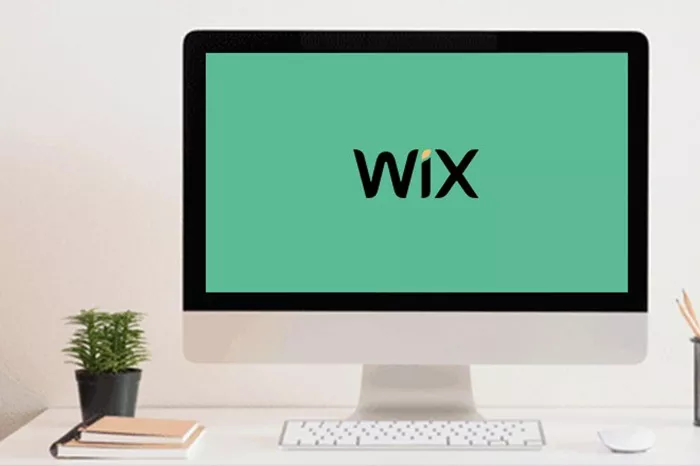Search Engine Optimization (SEO) is crucial for improving the visibility of a website on search engines like Google, Bing, and Yahoo. Wix, a popular website builder, offers many built-in SEO tools and features that make optimization straightforward. This article provides a detailed guide on how to do SEO on Wix effectively, ensuring your site ranks higher and attracts more visitors.
Wix SEO Basics
Before diving into advanced strategies, it’s essential to understand the basics of SEO on Wix. Wix provides an SEO Setup Checklist that guides users through the optimization process. This tool helps with:
Setting up page titles and descriptions
Connecting a domain
Optimizing content for search engines
Submitting a sitemap to Google
Using this checklist is the first step toward improving your site’s SEO.
Optimizing Website Structure
A well-structured website enhances user experience and search engine rankings. Follow these best practices:
Use a Clear Site Hierarchy: Organize your site into logical categories. Ensure your main pages are accessible from the homepage.
Enable HTTPS: Wix provides free SSL certificates, which improve security and trustworthiness.
Improve Page Loading Speed: Optimize images, reduce unnecessary animations, and use Wix’s built-in performance features to enhance site speed.
Keyword Research and Implementation
Keywords are the foundation of SEO. To optimize your Wix site effectively:
Conduct Keyword Research: Use tools like Google Keyword Planner, Ahrefs, or SEMrush to find relevant keywords for your niche.
Optimize Page Titles and Meta Descriptions: Ensure each page has a unique and descriptive title with primary keywords.
Include Keywords in Content: Naturally integrate keywords in headings, paragraphs, and image alt text.
Use Long-Tail Keywords: Target specific phrases that potential visitors might search for.
Optimizing On-Page SEO Elements
On-page SEO involves optimizing individual pages to rank higher. Key aspects include:
Headings (H1, H2, H3, etc.): Use heading tags to structure content effectively.
Alt Text for Images: Describe images accurately to help search engines understand the content.
Internal Linking: Link to other relevant pages within your site to improve navigation and authority.
URL Optimization: Use short, descriptive URLs containing keywords.
Mobile Optimization
Google prioritizes mobile-friendly websites. Wix automatically optimizes websites for mobile devices, but you should:
Test your site’s mobile version using Google’s Mobile-Friendly Test.
Adjust text size and image placement for better readability.
Ensure buttons and navigation elements are easy to tap.
Technical SEO Enhancements
Technical SEO ensures your Wix site is easily crawlable by search engines. Important steps include:
Submit a Sitemap: Wix automatically generates a sitemap, but you should submit it to Google Search Console.
Set Up Robots.txt: Wix provides a built-in robots.txt file to control which pages search engines crawl.
Fix Broken Links: Regularly check for and fix broken links to enhance user experience.
Creating High-Quality Content
Content is a significant ranking factor. To improve SEO:
Publish Regular Blog Posts: Wix has a blogging feature that allows you to create SEO-friendly content.
Use Engaging Media: Include videos, images, and infographics to make content more interactive.
Write Long-Form Content: Articles with 1,500+ words tend to perform better in search rankings.
Update Old Content: Refresh outdated posts with new information and keywords.
Leveraging Wix SEO Tools
Wix offers several built-in SEO tools that simplify optimization:
Wix SEO Wiz: A step-by-step guide that personalizes SEO recommendations.
Structured Data Markup: Adds schema markup to help search engines understand your content.
301 Redirects: Helps preserve SEO value when changing URLs.
Wix Analytics: Tracks website performance and visitor behavior.
Building Backlinks for Authority
Backlinks from reputable sites improve search rankings. Strategies to acquire backlinks include:
Guest Blogging: Write articles for industry-related websites.
Partnering with Influencers: Collaborate with bloggers and influencers for mentions.
Listing on Directories: Submit your site to business directories relevant to your industry.
Creating Shareable Content: Develop infographics, case studies, and research-based content that others link to.
Local SEO Optimization
If you run a local business, optimizing for local SEO is essential:
Set Up Google My Business: Ensure your business is listed and verified on Google.
Use Location-Based Keywords: Include city and region names in content and meta descriptions.
Encourage Reviews: Positive reviews on Google and Yelp improve local rankings.
Add Business Schema Markup: Helps search engines understand your location and services.
Monitoring and Improving SEO Performance
SEO is an ongoing process. Track your progress using:
Google Search Console: Monitors search performance and detects errors.
Google Analytics: Provides insights into visitor behavior.
Wix Analytics: Offers built-in reports on traffic and engagement.
SEO Audit Tools: Tools like Ahrefs and Moz help identify areas for improvement.
Common SEO Mistakes to Avoid
To prevent ranking issues, avoid these common mistakes:
Keyword Stuffing: Overusing keywords can lead to penalties.
Ignoring Mobile Optimization: A poor mobile experience reduces rankings.
Neglecting Internal Linking: Missing links decrease page authority.
Forgetting to Update Content: Old content can lose relevance over time.
Conclusion
SEO on Wix requires a strategic approach, from optimizing site structure to creating high-quality content and building backlinks. By utilizing Wix’s built-in SEO tools, performing regular audits, and staying updated on best practices, you can significantly improve your website’s search engine rankings. Consistency and patience are key to long-term SEO success.
Related Topics
- How Do You Get People to View Your Blog?
- Why Is It Important to Post to a Blog?
- What Is the Purpose of Blogging for B2B?

